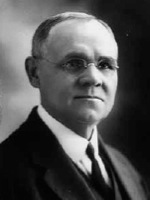
I’ve been struggling to find a topic or study practice to keep my studies coherent. I was prompted to start reading “Jesus the Christ” by James E. Talmage.
I only have a copy in German, from my mission, so this will be interesting (unfortunately my German skills have deteriorated). Of course it is available in many languages for free on Project Gutenberg. So I may have to reference that quite often.
Talmage makes seven points from the Church of Jesus Christ of Latter-day Saints that are specific to the understanding of Jesus Christ and which are different than any other church’s beliefs.
- Christ’s mission extends before and after his earthly life.
- He belonged to the Godhead before his life on earth.
- He was literally the son of a God and a mortal mother
- His physical death and physical resurrection really did happen, and as a result the power of death has been overcome (much more to be written on that later, but basically, because Jesus had the ability to make his spirit and body reunite after separating through death, he will give everyone who has died the power to reunite their spirit and body. The LDS Church, I think, is unique in believing this will happen for every single person who lived on the earth.)
- The Atonement is a reality, it really did happen, and anybody who follows Christ’s gospel will be able to use it.
- Jesus’ power (the priesthood) and his church are restored in this time period, which is called the “dispensation of the fullness of times” in the scriptures
- Jesus Christ will really come again in a relatively short time, and will personally and physically be the king and Lord of earth.
Well, my translations aren’t that bad. Each of those points could be a book… or at least a nice blog post. 🙂
